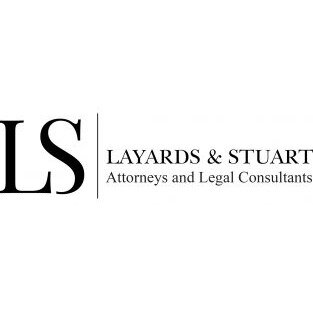Best Housing, Construction & Development Lawyers in Sri Lanka
Share your needs with us, get contacted by law firms.
Free. Takes 2 min.
Free Guide to Hiring a Real Estate Lawyer
Or refine your search by selecting a city:
List of the best lawyers in Sri Lanka
About Housing, Construction & Development Law in Sri Lanka
Housing, Construction, and Development Law in Sri Lanka is a crucial sector that encompasses regulations related to the building and development of residential and commercial properties. The legal framework governs zoning laws, land use, building codes, property development, and environmental standards. This sector is vital for ensuring organized urban planning, sustainable development, and the protection of property rights. Sri Lanka’s legal landscape in this sector is designed to sustain growth while preserving historical and environmental landmarks.
Why You May Need a Lawyer
Legal assistance in Housing, Construction & Development can be crucial for several reasons. You may require a lawyer if you are:
- Involved in a property dispute or require clarity in property rights.
- Undertaking a property purchase and need assistance with due diligence and contract review.
- Embarking on a construction project and need guidance on complying with zoning and building regulations.
- Encountering legal issues with property developers or contractors.
- Engaged in lease negotiations or need to resolve landlord-tenant disputes.
- Dealing with real estate taxes and valuation issues.
- Concerned with environmental compliance related to a development project.
Local Laws Overview
Sri Lanka's laws covering Housing, Construction & Development are comprehensive and multifaceted, including:
- Planning and Building Regulations: Govern land usage, development permissions, and building standards to ensure safe construction practices.
- Land Acquisition Act: Details the process for state acquisition of private land for public use, ensuring fair compensation.
- Condominium Property Act: Provides guidelines for the registration and governance of condominium properties.
- Town and Country Planning Ordinance: Focuses on structured urban development and landscape conservation.
- Rent Act: Protects tenant rights while regulating rent levels and lease terms for housing and buildings.
Frequently Asked Questions
What are the steps involved in purchasing a property in Sri Lanka?
Purchasing property involves title searches, obtaining legal opinions, executing a sales agreement, and proceeding with deed transfers under public notary supervision.
Can foreigners own property directly in Sri Lanka?
Foreigners can purchase condominiums above the fourth floor but generally cannot own land directly unless it is a hundred percent through a company or leasehold ownership.
What is the importance of zoning laws in Sri Lanka?
Zoning laws regulate land use in different areas, defining residential, commercial, and industrial zones, vital for organized development.
How can I resolve a property boundary dispute?
Boundary disputes can be resolved through negotiation, mediation, or legal proceedings, with the involvement of a survey professional often helpful.
What are the penalties for building without proper permits?
Unauthorized construction can lead to financial penalties, demolition orders, and legal proceedings under local government laws.
How do environmental laws impact construction projects?
Projects must comply with environmental regulations, including obtaining Environmental Impact Assessments (EIAs) for large projects to minimize ecological damage.
What rights do tenants have under Sri Lankan law?
Tenants are protected by the Rent Act, ensuring fair rent assessments and safeguarding against unwarranted eviction.
How can I engage a construction contractor legally?
It’s crucial to draft a detailed contract outlining project scope, timelines, payment terms, and compliance with all regulatory frameworks.
What is a Condominium Management Corporation?
This is an entity established to manage and maintain common elements in a condominium building, representing condo owners’ interests.
Are there tax implications in real estate transactions?
Real estate transactions may include stamp duty, capital gains tax, and other levies dependent on the transaction type and value.
Additional Resources
Here are some additional resources and organizations that can assist you:
- Department of National Planning: Manages urban planning and development policies.
- Urban Development Authority (UDA): Oversees urban development projects and zoning regulations.
- Central Environmental Authority: Ensures compliance with environmental regulations for development projects.
- Land Survey Council: Regulates and supervises the surveying profession, ensuring accurate and fair property boundaries.
- Sri Lanka Institute of Architects: Provides standards and practices for architectural work in complying with construction laws.
Next Steps
If you need legal assistance in the Housing, Construction & Development sector in Sri Lanka:
- Consult with an experienced real estate lawyer to understand your specific circumstances.
- Research and prepare any documents or contracts related to your case or property.
- Engage with professionals, like chartered surveyors or construction experts, for technical insights if necessary.
- Explore mediation services for dispute resolution before pursuing litigation.
- Stay informed about local development laws and any changes that may affect your case or property interests.
Lawzana helps you find the best lawyers and law firms in Sri Lanka through a curated and pre-screened list of qualified legal professionals. Our platform offers rankings and detailed profiles of attorneys and law firms, allowing you to compare based on practice areas, including Housing, Construction & Development, experience, and client feedback.
Each profile includes a description of the firm's areas of practice, client reviews, team members and partners, year of establishment, spoken languages, office locations, contact information, social media presence, and any published articles or resources. Most firms on our platform speak English and are experienced in both local and international legal matters.
Get a quote from top-rated law firms in Sri Lanka — quickly, securely, and without unnecessary hassle.
Disclaimer:
The information provided on this page is for general informational purposes only and does not constitute legal advice. While we strive to ensure the accuracy and relevance of the content, legal information may change over time, and interpretations of the law can vary. You should always consult with a qualified legal professional for advice specific to your situation.
We disclaim all liability for actions taken or not taken based on the content of this page. If you believe any information is incorrect or outdated, please contact us, and we will review and update it where appropriate.
Browse housing, construction & development law firms by city in Sri Lanka
Refine your search by selecting a city.

















